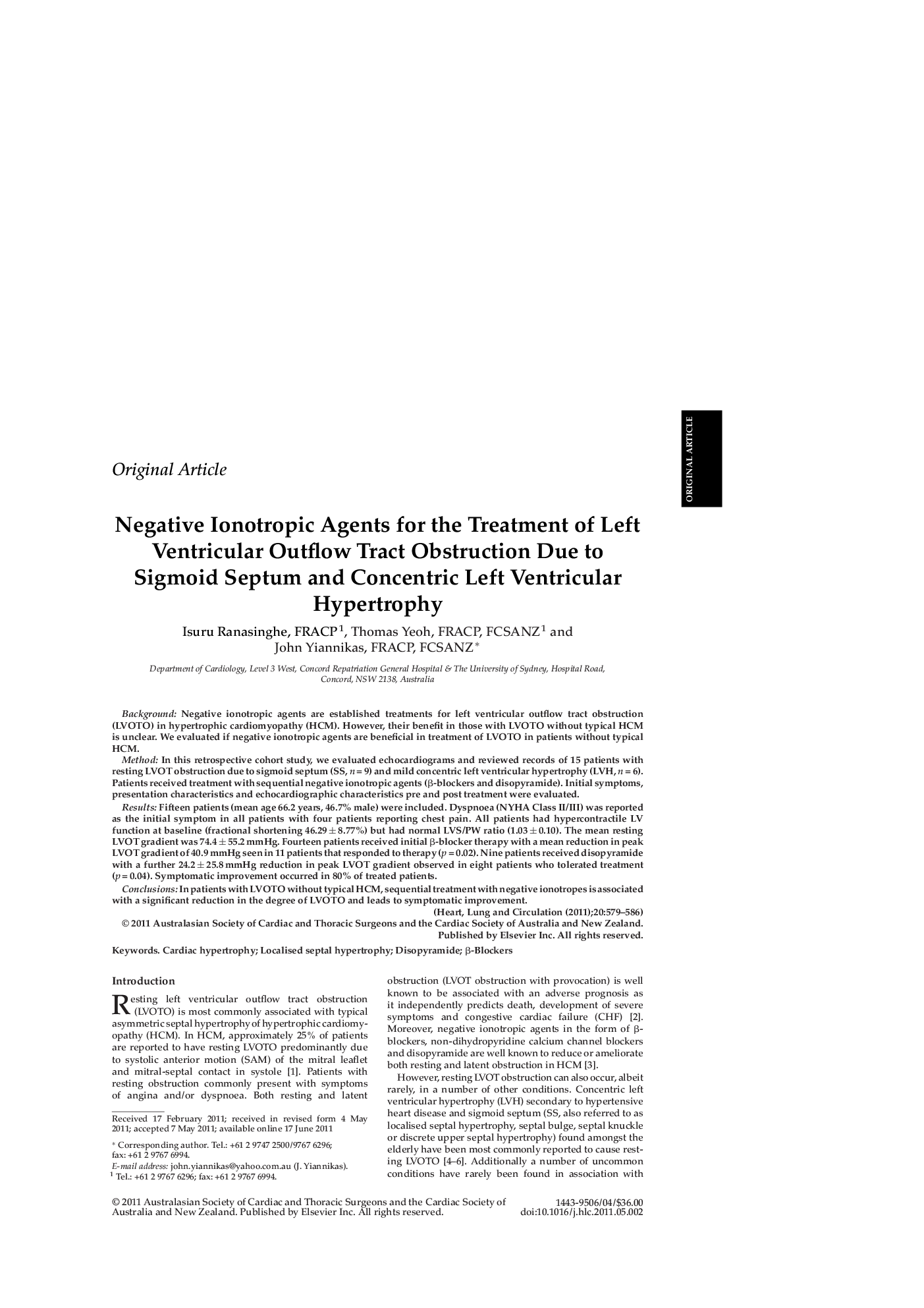| Article ID | Journal | Published Year | Pages | File Type |
|---|---|---|---|---|
| 2918665 | Heart, Lung and Circulation | 2011 | 8 Pages |
BackgroundNegative ionotropic agents are established treatments for left ventricular outflow tract obstruction (LVOTO) in hypertrophic cardiomyopathy (HCM). However, their benefit in those with LVOTO without typical HCM is unclear. We evaluated if negative ionotropic agents are beneficial in treatment of LVOTO in patients without typical HCM.MethodIn this retrospective cohort study, we evaluated echocardiograms and reviewed records of 15 patients with resting LVOT obstruction due to sigmoid septum (SS, n = 9) and mild concentric left ventricular hypertrophy (LVH, n = 6). Patients received treatment with sequential negative ionotropic agents (β-blockers and disopyramide). Initial symptoms, presentation characteristics and echocardiographic characteristics pre and post treatment were evaluated.ResultsFifteen patients (mean age 66.2 years, 46.7% male) were included. Dyspnoea (NYHA Class II/III) was reported as the initial symptom in all patients with four patients reporting chest pain. All patients had hypercontractile LV function at baseline (fractional shortening 46.29 ± 8.77%) but had normal LVS/PW ratio (1.03 ± 0.10). The mean resting LVOT gradient was 74.4 ± 55.2 mmHg. Fourteen patients received initial β-blocker therapy with a mean reduction in peak LVOT gradient of 40.9 mmHg seen in 11 patients that responded to therapy (p = 0.02). Nine patients received disopyramide with a further 24.2 ± 25.8 mmHg reduction in peak LVOT gradient observed in eight patients who tolerated treatment (p = 0.04). Symptomatic improvement occurred in 80% of treated patients.ConclusionsIn patients with LVOTO without typical HCM, sequential treatment with negative ionotropes is associated with a significant reduction in the degree of LVOTO and leads to symptomatic improvement.
► Sigmoid septum and LVH are uncommon causes of left ventricular outflow obstruction. ► Unclear benefit of negative ionotropic agents in this setting. ► We compared the benefit of B-Blockers and/or disopyramide in this setting. ► Treatment resulted in a reduction in resting LVOT gradient and symptom improvement B-Blockers and disopyramide were well tolerated.
